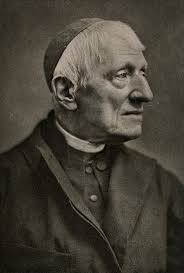
Introduction
John Henry Newman, a prominent theologian, poet, and cardinal of the Catholic Church, remains an influential figure in religious thought and education. His ideas and writings have left a substantial mark on contemporary theology, making his life story particularly relevant in discussions about faith, reason, and the role of religion in education today.
Life and Early Career
Born on February 21, 1801, in London, Newman was educated at the University of Oxford, where he became a leading member of the Oxford Movement, which sought to revive the Catholic elements within Anglicanism. His strong belief in the significance of personal faith and reason led him to explore deeper theological teachings which ultimately resulted in his conversion to Catholicism in 1845, a change that stirred considerable controversy at the time.
Theological Contributions
Newman’s most notable work, “Apologia Pro Vita Sua” (1864), serves as a defense of his religious beliefs and outlines his journey of faith. This text has been influential in Christian apologetics and is often referenced in discussions about the relationship between faith and reason. Additionally, Newman articulated the concept of the “development of doctrine,” suggesting that understandings of faith evolve over time while retaining a core truth. His insights continue to inform Catholic education and catechesis, highlighting the importance of integrating faith with intellectual inquiry.
Impact on Education
Beyond theology, Newman’s contributions extended into the field of education. He became the first rector of the Catholic University of Ireland, advocating for a system of education that fostered both secular and religious learning. His vision for a university education that nurtured moral and intellectual virtues has influenced modern educational frameworks, particularly in how universities can serve both academic and spiritual needs.
Canonization and Ongoing Relevance
In 2019, Pope Francis canonized John Henry Newman, recognizing his contributions to the Church and society. His canonization brought renewed attention to his writings and ideas, sparking discussions around the relevance of Newman’s thoughts in today’s context of increasing secularism and moral relativism. As individuals and institutions continue to navigate complex ethical landscapes, Newman’s emphasis on the interplay between faith, reason, and conscience provides timeless guidance.
Conclusion
John Henry Newman’s life and teachings remind us of the enduring relevance of faith in the pursuit of knowledge and truth. As educators, theologians, and laypeople continue to explore the relationship between belief and reason, Newman’s insights will undoubtedly play a critical role in shaping future dialogues. His legacy serves as a beacon for those seeking to understand the intricate tapestry of faith and intellectual pursuit in the modern world.



